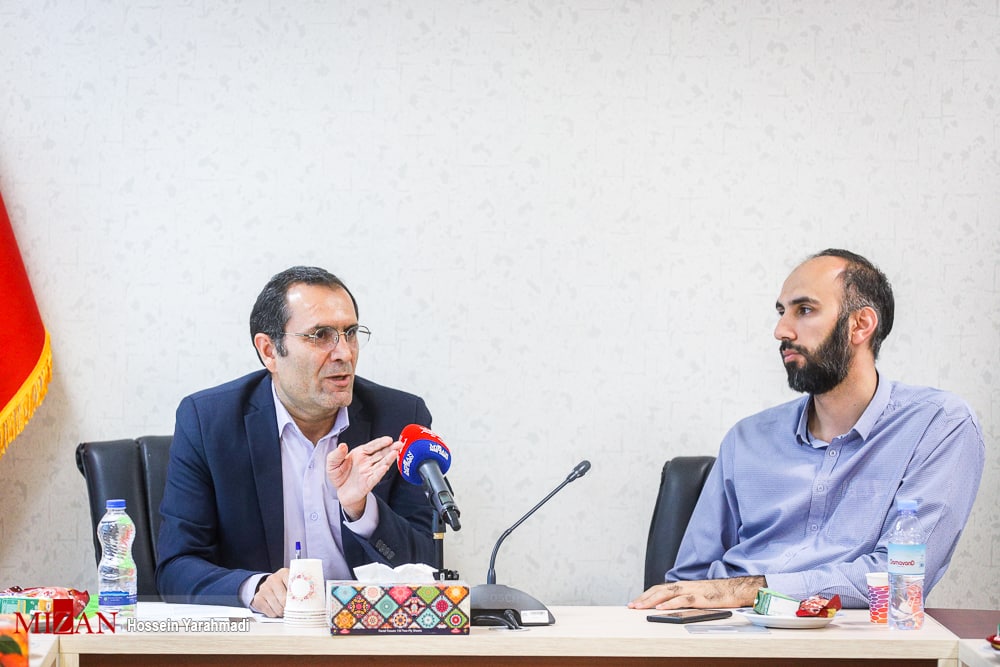
The latest status of the Hamid Nouri case/the indictment issued against Nouri is the most baseless judicial document in Swedish legal history
Hamid Nouri", on November 18, 2018, was violently and illegally arrested by the police of this country upon entering the airport of Stockholm, Sweden, and for months he was not able to contact his family or have consular access. During these three years, "Hamid Nouri" has been in solitary confinement and the Swedish authorities have violated many of his fundamental and basic rights. Coinciding with the third anniversary of Hamid Nouri's arrest and imprisonment in Swedish prisons, Meezan News Agency spoke to Haibatullah Najandimanesh, the legal advisor of Hamid Nouri's family, to investigate the latest situation of this Iranian citizen arrested in Sweden and the legal aspects of this case. We have paid what you will read below. Mizan: What are the contradictions of Hamid Nouri's arrest and keeping him in solitary confinement for three years with international laws and human rights? Najandi Menesh: The first issue is that the arrest of Hamid Nouri is illegal; First, several people conspired together and then they trapped the prosecutor, and contrary to the condition of the person's presence in the prosecuting country, an order was issued for Mr. Nouri's arrest even before he entered Sweden. Second, this detention in solitary confinement is an example of torture. Mizan: Have the Swedes adhered to the domestic laws of this country in this case? Najandi Menesh: Apparently, the Swedes planned and fixed the matter very well; They take a pose based on a "fair trial" and claim, for example, that about 95 public trial sessions were held, but the reality is that Mr. Nouri's right to an effective defense was ignored. Imagine putting a person in solitary confinement, cutting off all his communication with the outside world, a person who is about 60 years old and has poor eyesight, his right to access to an ophthalmologist is ignored. Until today, he has not been given this access. This is despite the fact that this file has several thousand pages and "Hamid Nouri" has to read several volumes of books and documents. It is obvious that a person cannot defend himself in such a situation. When he wants to protest the violation of these cases in the so-called public hearing, the judge's response is that "if you raise these cases, the hearing will be stopped", even when the preliminary judgment was issued and it was in Swedish, about twenty days later. After the deadline for the appeal, the Persian translation received a part of the vote. While he does not know Swedish and the vote should have been translated into Farsi in due time for Mr. Nouri. Of course, the translation done is really vague. In addition, the principle of Hamid Nouri's arrest, as it was said before, is based on the abuse of ethics and proceedings. Mizan: At what stage is the appeal process and when will the Swedish court review and respond to the bill of objection? Najandi Manesh: Currently, the stage of objection to the preliminary ruling is regarding jurisdiction; At this stage, only the objection to the jurisdiction is examined and next week, a decision will be made regarding the meetings and hearing dates. Mizan: What is the reason for the detention center not complying with the judge's order to cancel the restrictions following the issuance of the verdict in May? Najandi Menesh: The Swedes have not given any specific reason; What we followed up from the judge and the prosecutor was that "the detention center has its own regulations and independence and we cannot interfere." Mizan: What contradictions are there in the actions of the Swedish court regarding one-sidedness in the litigation process? Najhandi Manesh: Anyone who reads Rai Badavi raises two main objections: firstly, it is a one-sided story. A story that was only raised by the prosecutor and Shekat. Second, the court has considered all the claims raised by the prosecutor and the accused as "presumptive". In fact, the Swedish Court of First Instance has built its verdict on weak and weak walls. In addition to these cases, there are many contradictions, both in terms of thematic issues and in terms of ruling issues; The use of non-specialists in specialized subjects is a serious objection to voting. For example, regarding jurisprudential and Islamic issues, a Swedish professor has been asked for an expert opinion, which is only his doctoral dissertation on Islamic issues. In addition, the prosecutor uses the contents of "Wikipedia" and the so-called "Iran Tribunal", which shows the inability of the prosecutor to present evidence. The indictment issued against Mr. Noori will go down in history as the weakest and most baseless judicial document in Swedish legal history, as well as the initial verdict that was issued. Mizan: Give an explanation about the case of Hamid Nouri Najandi Menesh: Mr. Nouri's case showed that if rights become a tool of politics, not only the right of a person to a fair trial will be challenged, but also the rule of law and even the fair trial itself will be weakened. Our expectation is that at the appeal stage, the proceedings will be completely legal; The prosecutor should conduct an independent and comprehensive investigation. In addition to this, the Swedish government should provide the grounds for a lawsuit by terror victims against hypocrites based in Sweden, as well as adhere to its obligations under international law to not grant asylum to terrorist individuals.
Wednesday 2022/11/09 | 17:21:31
230